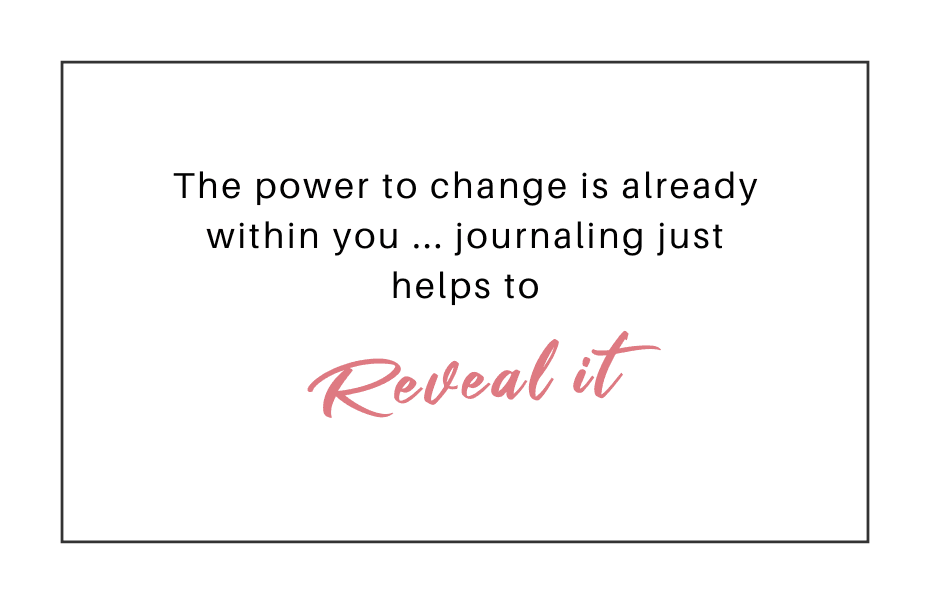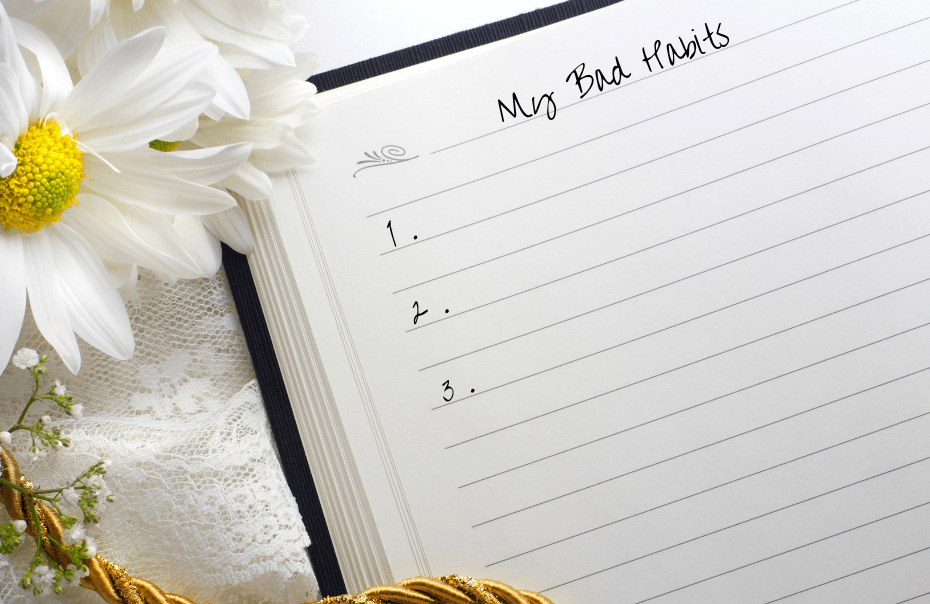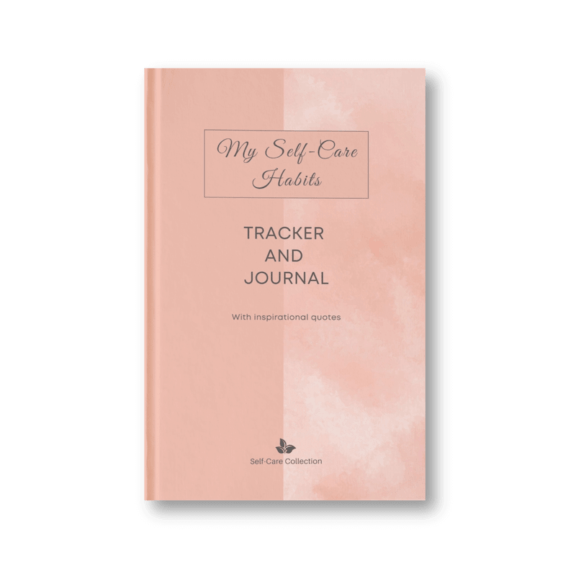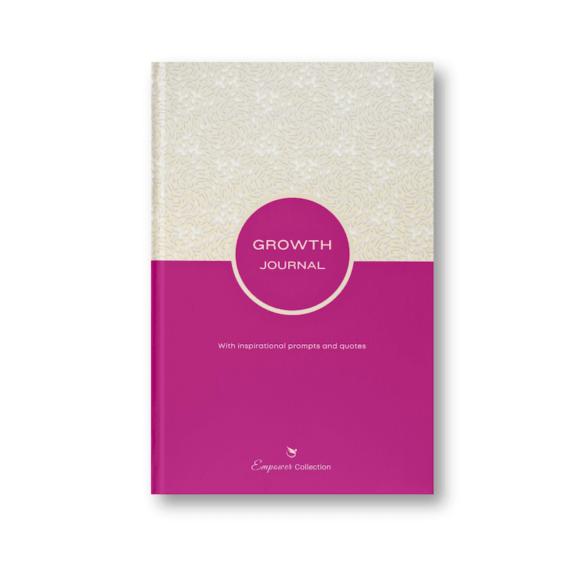Breaking bad habits is not an easy task. Whether you are a nail-biter, a procrastinator, an overeater, or someone who spends too much time scrolling through social media instead of focusing on your planned tasks, these behaviours can quickly become ingrained and problematic. The good news is that, with the right tools, a healthy dose of honesty, and genuine persistence, change is absolutely achievable. One effective tool that can help to break bad habits is journaling. It can help you uncover the root causes of your habits and find the motivation to make positive changes.
In this blog post, we will explore how journaling can serve as a personalised strategy for breaking bad habits. We will also provide practical tips, prompts, and techniques to help support your progress.
Why Do We Struggle with Bad Habits?
Before tackling how to break bad habits, it helps to understand why they exist in the first place. At their core, habits are behaviours that have become automatic. They are often linked to specific triggers or emotional states where they fulfil a perceived need or provide temporary relief. The problem is, they may also bring frustration, and even shame, as they repeatedly sabotage your progress towards your goals.
Here are some reasons why bad habits persist:
- Comfort and familiarity – Habits are easier to maintain than they are to break, as they require little conscious effort.
- Emotional reinforcement – Habits can be coping mechanisms for things like stress, anxiety, and boredom.
- Reward loops – Even bad habits offer some form of short-term reward, this could be a sense of relief, pleasure, or distraction.
- Lack of self-awareness – Without recognising the triggers or patterns behind a habit, it can be difficult to make changes.
Journaling is a great way to shine a spotlight on these underlying factors. It can empower you to take control and intentionally work toward breaking those negative cycles.
The Science Behind Habits
1. Understanding the Mechanisms
Understanding the underlying mechanisms of habit formation could provide the head start you need in learning how to break bad habits. Habits are more than just behaviours, they are deeply rooted in brain activity, governed by two key systems: the stimulus-response (S-R) system and the goal-directed system.
- The S-R System – This is responsible for automatic behaviours triggered by familiar cues. It helps us conserve mental energy by repeating well-practised actions without much thought.
- The Goal-Directed System – This system enables flexible and intentional behaviour, guiding us towards specific objectives.
2. Why Do Habits Stick?
Research shows that habits form through repetition and reinforcement, which create neural pathways in the brain. When an action is consistently paired with a cue and a rewarding outcome, it becomes ingrained. However, when there is an imbalance between these systems, such as over-reliance on the S-R system, people may find themselves stuck in unhelpful habits or engaging in impulsive behaviours.

3. Breaking the Habit Cycle
Studies have shown that to break bad habits, the cue-action-reward cycle must be disrupted and the goal-directed system must be engaged. Strategies for this include:
- Avoiding triggers – Since cues play a significant role, identifying and minimising exposure to triggers can reduce the likelihood of engaging in the habit.
- Mindful awareness – Neuroscience has found that practices like mindfulness can enhance the activity of the goal-directed system, making it easier to resist automatic responses.
- Gradual rewiring – Replacing an unwanted habit with a positive behaviour is more effective than simply trying to suppress it. This approach creates new neural connections that eventually overwrite the old habit.
With this knowledge, you can align your habit-changing efforts with how your brain naturally works. By adding journaling to the mix, you can reflect on your triggers, create personalised strategies for success, and document your progress.
How Journaling Can Help to Break Bad Habits
From what we already know about journaling, it is clear that it offers a powerful framework for tackling bad habits in a structured, reflective way. It provides a space to:
- Identify triggers – By documenting when, where, and why your habit occurs, you can uncover patterns that might otherwise go unnoticed.
- Build self-awareness – Writing about your experiences helps you reflect on your emotions, motivations, and thought processes.
- Set intentions – A journal can serve as a roadmap for change, helping you outline clear goals and actionable steps.
- Track progress – Whether you are succeeding or struggling, your journal becomes a record of growth, helping you stay accountable.
- Stay motivated – Re-reading positive entries and affirmations can reignite your commitment during challenging moments.
How to Break Bad Habits with Journaling - 5 Key Steps
Step 1. Define Your Bad Habit and Your Why
Start by defining the habit you want to break and why it matters to you. Instead of simply writing, “I want to stop procrastinating”, go deeper:
Example:
“I procrastinate when attempting a task because I feel overwhelmed and doubt my abilities. Breaking this habit will help me feel more confident and accomplish what I set out to achieve.”
Writing down your reasons helps to clarify your motivation and creates a sense of purpose. It also acts as a reminder of what is at stake when temptation arises.
Step 2. Explore Triggers with Specific Prompts
Understanding the triggers behind your habit is essential. Use prompts to dig into the emotional and situational factors at play:
Examples:
“When and where does this habit usually occur?”
“What emotions or thoughts lead me to engage in this habit?”
“What need does this habit fulfil, and how else can I meet that need?”
For example, if your habit is late-night snacking, you might discover that it is triggered by boredom or stress. This awareness allows you to plan alternative actions, such as reading, or taking a relaxing bath.
Step 3. Create a Habit Tracker
A habit tracker is an effective way to visually monitor your progress. Dedicate a section in your journal to track:
- How often you engage in the habit.
- Days when you successfully resist it.
- Alternative actions you take instead.
Example:
If your goal is to limit scrolling on social media, you could track how many hours you spend online each day versus how many hours you spend on more productive activities.
The act of recording your behaviour encourages accountability and provides tangible evidence of your improvement over time.
Step 4. Replace Bad Habits with Positive Ones
Breaking a habit is easier when you replace it with a positive behaviour that serves the same purpose. Use your journal to brainstorm replacement habits and plan how to implement them.
Example:
- Bad habit: Checking your phone first thing in the morning.
- Replacement habit: Writing three things you are grateful for in your journal instead.
Documenting your replacement habits reinforces your commitment and serves as a motivational boost on your journey to change.
Step 5. Write Affirmations and Commitments
Affirmations are a great way to keep your mindset focused on growth and positivity. Dedicate a section of your journal to affirmation statements.
Example:
- “I am strong enough to break this habit.”
- “Even the smallest of steps move me closer to my goals.”
- “I have the power to choose healthier behaviours.”
Writing, reading, and speaking affirmations regularly helps to reprogram negative self-talk and build confidence in your ability to succeed.

Tips for Overcoming Challenges and Staying Consistent
Even with the best intentions, trying to break bad habits is challenging. Journaling can help you navigate these difficulties by allowing you to reflect and explore ways to overcome them.
1. Acknowledge Setbacks Without Self-Criticism
If you have a slip-up, use your journal to reflect with honesty, but without judgement. Ask yourself:
- “What caused this setback?”
- “What can I learn from this experience?”
- “How can I handle similar situations better in the future?”
Remember, setbacks are part of the process. What matters is how you respond and continue moving forward.
2. Revisit Your Why
When motivation wanes, go back to your original “why” and remind yourself of the bigger picture. Re-read positive entries in your journal or create a page dedicated to visualising your success – because visualisation really helps.
3. Celebrate Small Wins
Progress is typically made in small steps, not giant leaps. Use your journal to celebrate even the tiniest victories, for example, you may set a goal to resist temptation every day for a week, but only manage to resist for one day – this is still a win, and worth celebrating.
Advanced Journaling Techniques for Deeper Insights
For those who want to take their journaling further, consider trying these advanced techniques:
- Mind Mapping – Create visual diagrams to explore connections between triggers, emotions, and habits.
- Future Self Letters – Write a letter to your future self describing how your life will improve once the habit is broken.
- Mood Tracking – Track your emotions alongside your habits to identify patterns between your mental state and your behaviours.
Practical Tips for Journaling Success
We have discussed tips for journaling success extensively in other blog posts, but here are some quick tips on how to make journaling for habit change more effective:
- Be honest – Write openly about your experiences, even when it feels uncomfortable. Honesty is key to genuine self-awareness, which is also key to effective change.
- Make it convenient – Choose a journaling routine that fits your daily lifestyle. If journaling becomes a struggle, this can quickly overshadow your reasons for wanting to journal and greatly diminish any benefit.
- Stay flexible – There are no rules, allow your journaling approach to evolve as you learn more about yourself and your habits.
- Be creative – Add doodles, quotes, images, or colours to make your journaling more engaging and enjoyable.
Breaking bad habits requires persistence. Journaling provides a structured yet personal way to achieve this through honesty, commitment and regular reflection. It can help you make meaningful changes at your own pace. So, what bad habit are you ready to start tackling today?
Useful Resources About Habits
RESEARCH PAPER – Meta-Analysis on Habit Interventions: A scoping review by Heather Fritz, published in the Journal of Occupation, Participation and Health (2020)
>> Read here
ARTICLE – New research on habit change by cognitive neuroscientists from Trinity College Dublin: Science Daily
>> Read here
PODCAST – The Science of Making & Breaking Habits: Huberman Lab
>> Watch/Listen here





